South African Jews, whether by culture, ethnicity, or religion, form the twelfth largest Jewish community in the world, and the largest on the African continent. As of 2020, the Kaplan Centre at the University of Cape Town estimates 52,300 Jews in the country. The South African Jewish Board of Deputies estimates that the figure is closer to 75,000.

Reform Judaism, formally the Movement for Reform Judaism (MRJ) and known as Reform Synagogues of Great Britain until 2005, is one of the two World Union for Progressive Judaism–affiliated denominations in the United Kingdom. Reform is relatively traditional in comparison with its smaller counterpart, Liberal Judaism, though it does not regard Jewish law as binding. As of 2010, it was the second-largest Jewish religious group in the United Kingdom, with 19.4% of synagogue-member households. On 17 April 2023, Reform Judaism and Liberal Judaism announced their intention to merge as one single unified progressive Jewish movement. The new movement, which may be called Progressive Judaism, will represent about 30% of British Jewry who are affiliated to synagogues.

The World Union for Progressive Judaism (WUPJ) is the international umbrella organization for the various branches of Reform, Liberal and Progressive Judaism, as well as the separate Reconstructionist Judaism. The WUPJ is based in 40 countries with 1,275 affiliated synagogues, of which 1,170 are Reform, Progressive, or Liberal and 105 Reconstructionist. It claims to represent a total of some 1.8 million people, both registered constituents and non-member identifiers. The WUPJ states that it aims to create common ground between its constituents and to promote Progressive Judaism in places where individuals and groups are seeking authentic, yet modern ways of expressing themselves as Jews. It seeks to preserve Jewish integrity wherever Jews live, to encourage integration without assimilation, to deal with modernity while preserving the Jewish experience, and to strive for equal rights and social justice.
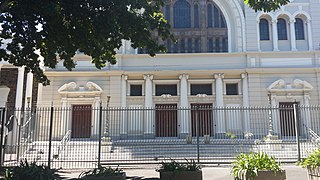
The Gardens Shul, formally the Cape Town Hebrew Congregation (CTHC), also called the Great Synagogue, is a Modern Orthodox Jewish congregation and synagogue, located in the Company Gardens, in the Gardens neighborhood of Cape Town, South Africa. The congregation was established in 1841, making it the oldest Jewish congregation in South Africa.
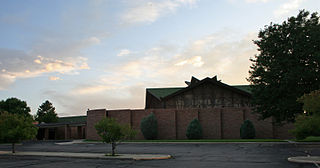
The Temple Emanuel, also known as Congregation Emanuel, is a Reform Jewish congregation and synagogue, located at 51 Grape Street, in Denver, Colorado, in the United States.
Masorti Olami is the international umbrella organization for Masorti Judaism, founded in 1957 with the goal of making Masorti Judaism a force in the Jewish world. Masorti Olami is affiliated with communities in over 36 countries, representing with partners in Israel and North America close to two million people worldwide, both registered members and non-member identifiers. Masorti Olami builds, renews, and strengthens Jewish life throughout the world, with efforts that focus on existing and developing communities in Europe, Latin America, the former Soviet Union, Africa, Asia, and Australia. More than 140 kehillot (communities) are affiliated with Masorti Olami in Argentina, Aruba, Australia, Bolivia, Brazil, Chile, Colombia, Cuba, the Czech Republic, Ecuador, El Salvador, France, Germany, Honduras, Hungary, India, Israel, Italy, Japan, Kenya, Mexico, the Netherlands, Paraguay, Peru, Poland, Portugal, Russia, South Africa, Spain, Sweden, Uganda, Ukraine, Uruguay, the United Kingdom and additionally, more than 600 in Canada and the United States and over 80 communities in Israel. All of Masorti Olami's activities are conducted within the context of the overall Conservative Judaism movement, in close cooperation with its affiliated organizations in North America and Israel. The current executive director is Rabbi Mauricio Balter.
André Ungar was a Hungarian-born Holocaust survivor, doctor of philosophy, liturgist, social activist, and rabbi who lived in England, South Africa and the United States. He was a rabbi at Temple Emanuel of the Pascack Valley in Westwood and later Woodcliff Lake, New Jersey for 44 years.
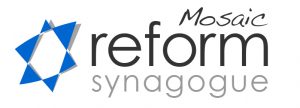
Mosaic Reform Synagogue is a Reform Jewish congregation and synagogue, located in Stanmore, in the Borough of Harrow, England, in the United Kingdom.
The Great Park Synagogue is an Orthodox Jewish congregation and synagogue, located at 75 4th Street, in Houghton, Johannesburg, in the region of Gauteng, South Africa.
The Temple Israel is a Progressive Jewish congregation and synagogue, located in Hillbrow, a suburb of Johannesburg, in the district of Gauteng, South Africa. Designed by Hermann Kallenbach in the Art Deco style, the synagogue was completed in 1936 and is the oldest of eleven Progressive synagogues in South Africa. The synagogue is classified as a provincial heritage site. The congregation is affiliated with the South African Union for Progressive Judaism (SAUPJ), which is part of the World Union for Progressive Judaism (WUPJ).
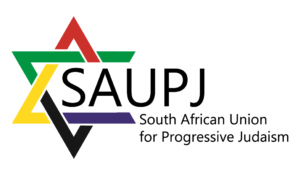
The South African Union for Progressive Judaism (SAUPJ) is an affiliate of the World Union for Progressive Judaism and supports 11 progressive congregations. Rabbi Moses Cyrus Weiler, a founder of Reform Judaism in the country, led the country's first Reform synagogue, Temple Israel in Hillbrow, Johannesburg. Weiler is credited with growing the movement, to represent 15-17% of South African Jewry and establishing 25 congregations in the country. A 2020 joint study by the Institute for Jewish Policy Research and the University of Cape Town showed that 12% of Jews identified as Progressive and that in relative terms the progressive strands are increasing after falling to 7% in 1998 and 2005 studies. In Johannesburg, the community accounts for 7% of the city's Jewry, rising to 18% in Cape Town and 25% in Durban.
The Temple Israel, also known as the Cape Town Progressive Jewish Congregation (CTPJC), is a Progressive Jewish congregation, located in Cape Town, with three synagogues located in each of Green Point, Wynberg and Milnerton, in the Western Cape region of South Africa. As three centres combined, they are the largest Progressive congregation in South Africa, and the second largest Jewish congregation in Cape Town after Marais Road Shul in Sea Point.
Moses Cyrus Weiler was a Latvian-born South African rabbi and founder of Reform Judaism in the country. He was Chief Minister of the United Jewish Progressive Congregation and served as rabbi of Temple Israel in Hillbrow, Johannesburg, the mother synagogue of the country's Reform movement. He is credited with growing the movement, with 25 congregations established during his tenure. He made aliyah to Israel in 1958, where he spent the second part of his life.
Rabbi Dr David Sherman was a South African and American rabbi. He was the first spiritual leader of a Reform congregation in Cape Town, where he led Temple Israel in Green Point.
Arthur Saul Super was a British-born rabbi and journalist. He initially served as a rabbi to Orthodox congregations before switching allegiances to Reform Judaism. He served as Chief Minister of the United Jewish Progressive Congregations of Johannesburg between 1964 and 1975.

The South African Jewish Museum is a museum of South African Jewish life, history and identity. The museum is situated in the downtown neighbourhood of Gardens in Cape Town. It is located in the grounds of Gardens Shul, and is in the same complex as the Cape Town Holocaust & Genocide Centre and the Gardens Jewish Community Centre. It is also close to the Iziko South African National Gallery and Houses of Parliament. The museum was founded by the late philanthropist, Mendel Kaplan. It documents the community's historical roots in Lithuania and elsewhere. Thereon it documents the role of South African Jewry in South African society and their contributions to a number of diverse fields.
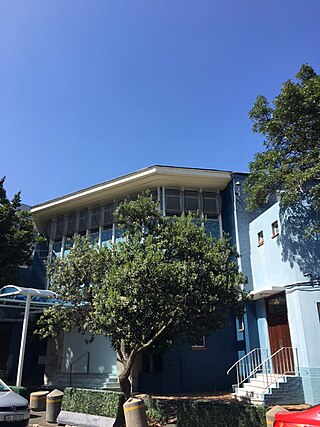
The Marais Road Shul, formally the Green & Sea Point Hebrew Congregation (G&SPHC), is a Modern Orthodox synagogue in Sea Point, a seaside suburb of Cape Town. The congregation was first established in 1926, and the synagogue was completed in 1934. It had initially intended to become a branch of the Gardens Shul in the City Bowl, but opted for independence, and became the larger of the two. It is the largest Jewish congregation in South Africa, and by 1994, it had become the largest in the South Hemisphere. The Sephardi Hebrew Congregation, established in 1960, also operates a shul from the G&SPHC's Weizmann Hall on Regent Road in Sea Point.
Durban Jewish Club, also known as Durban Jewish Centre, is an arts, culture and entertainment venue, an educational facility and a social and community hub in Durban, KwaZulu-Natal in South Africa. It was first established in 1931, and for a time it was the only country club in Durban that admitted Jews. It is also home to a number of Jewish organisations such as Beit David, a Reform synagogue. It is also the site of the Durban Holocaust and Genocide Centre, which has sister centres in Johannesburg and Cape Town, Cape Town Holocaust Centre and Johannesburg Holocaust and Genocide Centre.
Bet David Progressive Jewish Congregation, is a Progressive Jewish congregation and synagogue. It is located in Morningside in the Sandton area of Johannesburg. The congregation has had three synagogues during its lifetime, beginning in 1971. A larger synagogue was then built and consecrated in 1977. More recently, it's present and third synagogue was consecrated in 2017. It is an affiliate of the South African Union for Progressive Judaism (SAUPJ), which is part of the World Union for Progressive Judaism (WUPJ).
Temple Shalom was a Progressive Jewish congregation and synagogue situated on Louis Botha Avenue in Highlands North, a suburb of Johannesburg. The congregation was established in 1945 and the synagogue was consecrated in 1950. It served the community for over 65 years before its closure.







